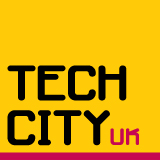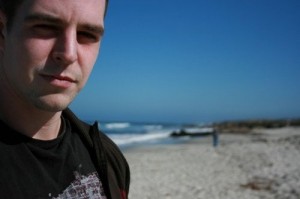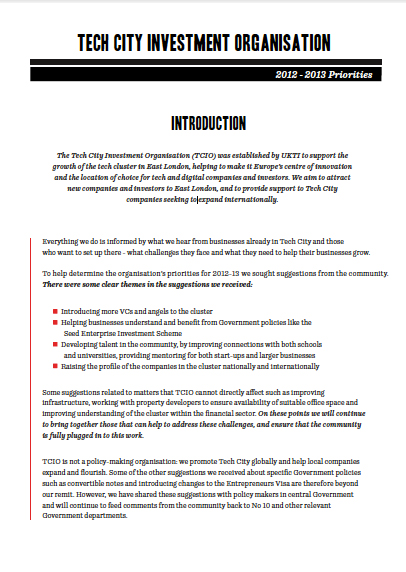One of the main factors people often cite when talking about what makes London, and in particular East London, a special place to do business is the unique combination of skills, styles, businesses and areas of expertise which the city is home to. Below, Peter Tullin of CultureLabel looks at how tech and culture can – and should – combine to help our cluster thrive…
I was at SXSW 2012 a few months ago and it struck me how much this phenomenon has in common with our so-called Silicon Roundabout. If you are not familiar with SXSW, it is in essence a festival of global creativity – but supercharged on a massive scale. Its particular claim to fame is hosting the breakthrough moments of start-ups like Facebook and Foursquare, and since then many founders head over to attempt to emulate their success.
Held annually in Austin, Texas it is a melting pot of ideas, attracting over 100,000 delegates across the worlds of music, film and interactive. However, for me, it is the intersections between all these creative disciplines where a lot of the magic happens. Inspiration comes from all areas and if you put creative people together then sparks will fly and the conversations are without boundary in this sort of environment.
So what does this mean for Tech City and the creative ecosystem it represents? Well, many people have been asking the question can Silicon Roundabout emulate the formula of Silicon Valley, which is perfectly valid as it’s a pretty successful one. But a very specific set of circumstances has led it to it to where it is today. Indeed we should try and get some of those fundamentals right such as better connecting funding to ideas. For example, even in the midst of a downturn the city has pockets of economic health and there are some great initiatives like City meets Tech designed to unlock a new network of angels. The arrival of tech giants like Google and their funding of incubator spaces is also welcome. But we shouldn’t seek to slavishly recreate Silicon Valley – we should be playing to our own strengths.
In this respect, perhaps the answer lies in analysing the reasons why Austin is flourishing as a tech location. For example, the home of Dell has just announced a new resident as Apple invests $222 million in a new campus. The city is constantly named as one of the best places to live in the US. It is equally famous for its liberal values (in a state that is perhaps not so famous for them) as well as its legendary live music and social scenes.
Likewise, back in London, Shoreditch and surrounding areas have long been a preferred haunt of creatives from artists, film-makers, advertising, fashionistas or musicians. The bars, restaurants, hotels and retail have all followed. However, even as the area closest to the City of London has become more and more gentrified and rents and house prices have risen, pushing out some of the artists, the effect has simply spilled over into the borders of Dalston and Haggerston amplifying the scene further.
The challenge is to create opportunities for these worlds to collide. We ‘do’ arts and culture really well in London, with global brands like Tate, Southbank Centre and the V&A that help ensure 8 of the top 10 visitor attactions in the capital are cultural venues (source: ALVA). We have incredible content creators such as the BFI and then there are commercial operators such as the Saatchi Gallery that have helped position London as a leader in the contemporary art world. Toronto is a case in point, as it is in part emerging as a tech location because companies like Ubisoft want to access the burgeoning Canadian film industry there to make their games more realistic.
Blurring the boundaries between technology and creative disciplines needs to be in the DNA of Tech City if it is to thrive. Tech City should be a metaphor for an ‘everyday SXSW’, capitalising on London’s position as one of the true global cities with a hugely diverse population where the creative and cultural industries that have continued to grow despite the recession. Survey upon survey highlights our cultural scene as one of the biggest reasons why so many people want to live here and the engineering of Tech City needs to have culture hardwired into it.
It’s already happening in pockets. Businesses such as Songkick have it at their core as a community for following musicians. In the same way my own company CultureLabel.com brings together a highly curated selection of the best art and culture product from hundreds of creative brands, including leading galleries, artists, musicians and designers. The best thing for us is that our partners effectively become our brand (and the vast majority of our creative retailers come from London).
Channel 4s film production arm Film4 – behind recent films as diverse as The Iron Lady, Shame and Attack the Block – recently announced Film4.0, an innovation hub that will develop cinematic work across multiple platforms including digital. Anna Higgs, who heads up Film4.0 is working with a number of companies in the Silicon Roundabout area including social-gaming company Hide&Seek. She told me “the boundaries between platforms are falling away as audiences are able to access stories in myriad ways. Therefore it’s vital that we work across creative disciplines and develop new forms of author-led collaborations that blur the lines between fiction and reality, film and games, and much much more. Right across the UK it’s brilliant to see hubs of creative practitioners forming, enabling this kind of innovative work.”
Secret Cinema (Leonard Street), which is reinventing what it means to experience film has worked with brands such as Nokia and Microsoft. It has a huge online following for its Future Shorts You Tube channel with over one million members. The Digital Shoreditch movement is also trying to celebrate the area’s credentials as a creative city by developing our version of SXSW and are claiming they will reach 50,000 people for this year’s event.
How do we create the opportunities and spaces for the best creative minds to mix with the best tech minds?
In this vein, CultureLabel.com have partnered with Google and Bloomberg to create REMIX, whose inaugural event will explore the intersection between culture, technology and entrepreneurship. In the same way that a DJ mixes tracks we want to blend these worlds. Tickets are on sale now and the event takes place on September 27th, 2012 at the Bloomberg Space on the Tech City border.
Peter Tullin is co-founder of www.CultureLabel.com, whose curated e-commerce site sells art and artist-designed products from hundreds of the world’s most iconic culture brands such as Tate, Saatchi Gallery and the V&A. CultureLabel is based in Shoreditch.
REMIX, the global summit for Culture, Technology & Entrepreneurship takes place September 27th 2012 and is hosted by Bloomberg and sponsored by Google.






